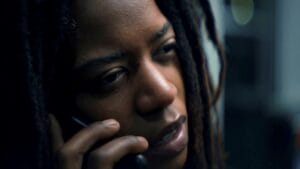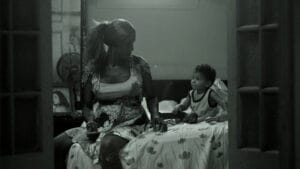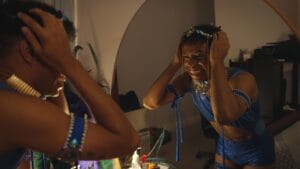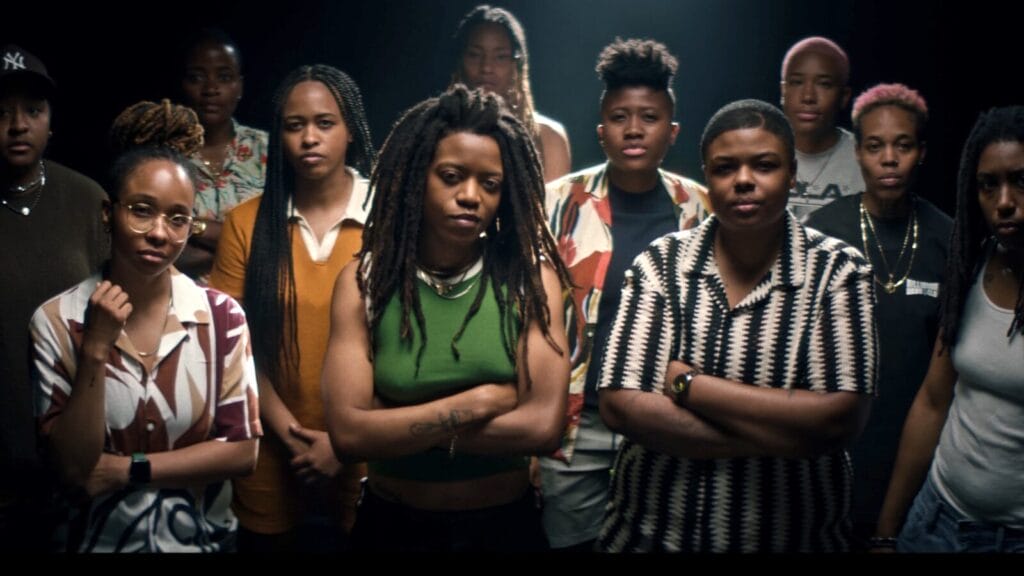This year’s NewFest Film Festival showcases a captivating and thought-provoking array of shorts under the theme “Caribbean Pride Power.” This vibrant collection highlights the richness of Caribbean culture while delving into the complexities of queer identity. Each film stands as a powerful reflection of the intersection between identity, resilience, and community, weaving together the diverse stories that shape the queer experience in the Caribbean and beyond. The filmmakers, with their unique backgrounds and perspectives, contribute layers of depth to the ongoing dialogue around identity and belonging. Their narratives challenge preconceived notions, cultivate empathy, and encourage viewers to reflect on their own journeys of self-discovery and understanding.
Moreover, this collection celebrates the resilience of the queer community, highlighting how individuals find strength and solidarity in their shared experiences. The films depict moments of joy and heartache, defiance and vulnerability, capturing the complexities of love and acceptance. They serve as a reminder that despite the challenges faced by queer individuals in the diaspora—such as prejudice, discrimination, and familial rejection—there exists a vibrant culture that champions self-expression and authenticity.
Ultimately, “Caribbean Pride Power” at NewFest is more than just a collection of films; it is a celebration of community, a call for visibility, and an invitation to engage with the powerful narratives that shape our understanding of love, identity, and resilience. By spotlighting these diverse voices, we not only honor the unique experiences of queer individuals within the Caribbean community but also contribute to a more inclusive dialogue that transcends borders and unites us all in the pursuit of authenticity and acceptance.
You Don’t Have To Like Me (dir. Safiyah Chiniere)
You Don’t Have To Like Me is a poignant and introspective exploration of a woman who presents as masculine, grappling with deep insecurities that threaten to consume her. Directed by Safiyah Chiniere and starring Jalese Ayana in the lead role, the film masterfully captures the complex journey of self-acceptance and the emotional toll of living in a world that demands conformity.
The film opens with a haunting inner monologue from the protagonist, immediately immersing the viewer in her personal struggle: “We live in a judgmental world that drives us apart, severing the love we so desperately hold on to.” This reflection sets the tone for a deeply personal narrative about the conflict between self-identity and societal pressure. It highlights the weight of being misunderstood, especially for those who do not fit into conventional gender norms.
As the protagonist moves through her world, Chiniere’s attention to sound design becomes a powerful narrative device, with moments of eerie silence juxtaposed with muffled, indistinct noises that mirror her internal emotional turmoil. In one key scene, her partner reaches out to her, attempting to bridge the growing emotional chasm between them, but the protagonist’s insecurities and self-doubt create a painful disconnect. “I am more than a label. Damn. You spend so much time wondering why, when my moments are devoted to loving,” she reflects, underscoring her frustration with being reduced to societal labels rather than being seen for who she truly is.

The film expertly contrasts scenes of vulnerability and isolation with moments of joy and community. In a particularly heart-wrenching moment, the protagonist receives distressing news from her mother, who expresses disapproval of her so-called ‘lifestyle.’ Their conversation reveals the complex, often painful dynamics of familial relationships: “Mom, what does that have to do with anything?” she questions, her voice heavy with frustration and hurt. Her mother’s reply, “Lord knows I wish I had my daughter with me. I don’t know you,” ignites a pivotal emotional conflict, capturing the tension between the protagonist’s desire for acceptance and her mother’s inability to see her true self.
In a moment of profound self-awareness, as the protagonist walks up the steps of a New York subway station, she silently narrates her thoughts: “If only you could see that I’m still your baby. I embody everything that you are and more. I’m just an evolved you.” This reflection poignantly speaks to the universal yearning for familial love and validation, a deep-seated desire that many, particularly those in marginalized communities, know all too well.
Yet, amidst her solitude, the film offers glimmers of hope. As she boards the subway, she is surrounded by queer couples, displaying affection in ways that starkly contrast her own isolation. In this moment, she makes a powerful declaration: “You don’t have to like me, but respect me. Despite all of it, I found something special—community.” This statement resonates as the heart of the film, encapsulating the protagonist’s journey toward self-acceptance and her realization that, even in the face of rejection, she has found strength and solace in a community that celebrates diversity.
You Don’t Have To Like Me is a deeply moving exploration of identity, familial love, and the complexities of finding one’s place in a world that often refuses to accept difference. Under Safiyah Chiniere’s direction and with Jalese Ayana’s evocative performance, the film delivers a powerful message of resilience and self-respect, reminding us that, even when we defy societal expectations, we still deserve to be seen and valued for who we truly are.
Azul Pandora (dir. Alan Gonzalez)
Azul Pandora, directed by Alan Gonzalez, tells the compelling story of Pandora, a middle-aged transgender woman, who initially resists the affections of a teenage boy named Roy. However, after an unexpected event, Pandora is forced to confront her own fears and question whether she is ready to open her heart again. The film delves into the complexities of love, self-acceptance, and the weight of societal judgment.
The film’s black-and-white sepia tones evoke a hauntingly beautiful atmosphere, amplifying the emotional depth of Pandora, played by Lady Chiv. In one of the most impactful scenes, Pandora confronts a figure from her past, Alberto. “You disappeared,” she says, her voice laden with unresolved hurt. His feeble excuses—ranging from a broken bike to a family emergency—are dwarfed by the gravity of her disappointment, illustrating the heartbreaking realities of relationships fraught with fear and societal pressure.
“I’m the third person in your life,” Pandora challenges, exposing the emotional neglect that has haunted their relationship. When she asserts, “Leave me alone, and let me be,” it becomes a powerful declaration of self-preservation, a stand against the emotional damage inflicted by unreciprocated love and societal rejection.
The film also captures tender, quiet moments between Pandora and Roy, portrayed by Mateo Menendez Llopiz, as they navigate the boundaries of love. When he tells her, “You have no idea what I’m thinking,” her response, “You have no idea what I’ve been through,” serves as a poignant reminder of the hidden struggles many within the transgender community face—battles with identity, acceptance, and the emotional distance caused by systemic structures that limit their ability to live freely and authentically.

In the film’s final moments, Roy vulnerably declares, “I am in love with you, and you know it,” only to be met with Pandora’s cold retort, “And what do I care?” Her response reflects the inner battle between her desire for love and the protective walls she has built from years of pain. As the credits roll, viewers are left questioning whether love can truly break through the barriers of fear, rejection, and prejudice that have long weighed on Pandora’s heart.
Azul Pandora is a poignant testament to the complexities of identity and connection, urging viewers to reflect on the power of vulnerability in the face of life’s harsh realities. Through Lady Chiv’s powerful performance, the film delicately navigates the intricacies of love and self-acceptance while shedding light on the emotional struggles faced by the transgender community. Gonzalez’s direction masterfully intertwines haunting visuals with emotionally raw writing, leaving audiences with a profound sense of empathy for Pandora’s journey.
Miss Honey: The Catsuit (dir. Brandon R. Nicholas)
Miss Honey: The Catsuit is a delightful exploration of creativity born from an unexpected fashion mishap. Directed, produced, and edited by Brandon R. Nicholas, the film recounts how Douglas Says, a New Jersey native fashion designer, created his iconic cut-out catsuit, worn by the unforgettable NYC nightlife staple, Moi Renee, during the performance of his catchy anthem “Miss Honey.” Executive produced by GLAAD’s very own DaShawn Usher, Senior Director of Communities of Color and Media at GLAAD and Founder/Executive Director at Mobilizing Our Brothers Initiative (MOBI), this project exemplifies GLAAD’s commitment to uplifting diverse voices in the entertainment industry.
The film opens with an energetic beat that immerses viewers in a vibrant nightlife filled with self-expression. Douglas recounts the origins of the iconic catsuit, describing how a simple garment was transformed into a daring fashion statement when the foot of his model unexpectedly tore through it. This ill-timed blunder sparked a fashion revolution as he creatively cut holes in the fabric, turning it into a captivating piece that quickly won over many admirers. Archival footage of the runway show highlights this transformation, with a presenter playfully remarking on the catsuit’s new and intriguing design: “This gives a new meaning to peek-a-boo!”
Douglas’s reflections on the design process reveal not just creativity but a sense of duty to the community, stating, “Moi Renee’s legacy is definitely Miss Honey….When he went into the studio to record that record, never in his wildest dreams could he imagine that it would be what it is today.” This moment embodies the magic of creativity—how inspiration can lead to transformation and elevate a cultural narrative.

Yet, amidst the celebration of queer creativity, the film starkly contrasts the joy of self-expression with the harsh realities faced by the LGBTQ+ community in the Caribbean. Douglas speaks candidly about the challenges, noting how many from the islands couldn’t live authentically at home but “went buck wild” after migrating to the U.S. This insight reflects the journey of many in the diaspora who migrate to the U.S. in search of the freedom to live authentically, often stifled by the rigid societal norms of their homeland. Douglas’s reflection resonates deeply, underscoring the complex tension between preserving cultural heritage and the longing for self-expression—a balancing act many must navigate as they forge their own identities in new, more accepting environments.
The stark contrast between the vibrant fashion narrative and the unsettling presence of newspaper headlines scattered across the screen—“Can gay West Indians survive the boom bye bye process?”—alongside articles containing derogatory slurs, forces viewers to confront the harsh realities many in the community endure. And yet, in spite of this, Moi Renee’s powerful declaration—“Here I am, feeling fierce”—echoes throughout the film, embodying the unwavering defiance and resilience of the LGBTQ+ community. This bold proclamation becomes a rallying cry, urging individuals to fully embrace their identities and assert their right to self-expression, unyielding in the face of societal prejudice.
Miss Honey: The Catsuit is a delightful exploration of creativity born from an unexpected fashion mishap, highlighting the artistic journey of designer Douglas Says. The film not only celebrates the vibrant energy of nightlife and self-expression but also emphasizes the profound impact of cultural identity on the creative process. Nicholas’s direction brilliantly intertwines humor and poignancy, leaving viewers inspired by the tenacity of those who dare to boldly embrace their true selves.
Caribbean Queen (dir. Sekiya Dorsett)
Caribbean Queen, directed by GLAAD award-winning filmmaker Sekiya Dorsett, is a powerful short film that follows the journey of Q, a young Caribbean individual in their twenties, who dreams of becoming the Queen of the West Indian Day Carnival Parade. Faced with prejudice from both family and community, Q grapples with societal expectations while yearning for self-expression. Despite the adversities they encounter, Q remains resolute in pursuing their dream, bolstered by the unwavering support of his best friend, Joe. Together, they navigate the intricate landscapes of identity and acceptance, exploring the transformative power of Caribbean culture. Ultimately, Q discovers that the path to authenticity is not just about celebration but also about embracing one’s true self.
The film opens with the vibrant sounds of a Brooklyn carnival, immersing viewers in the rich tapestry of Caribbean heritage. A journalist’s voiceover sets the stage: “The countdown is on; Brooklyn’s Caribbean transformation is underway. New York’s West Indian Carnival isn’t just a Labor Day Parade. It’s a week-long celebration, and everyone is invited.” Soon after, we meet our protagonist. As Q steps into their home, the warmth and intimacy of a diasporic kitchen envelop them, highlighting the dynamic between family members that is both loving and fraught with tension. Q’s stern aunt initially chastises him to hurry up and pass along the limes for the curry but quickly softens as the joy of cooking transforms the atmosphere. The scene bursts with life as they dance and sing in unison, only for the playful energy to be abruptly disrupted when Q’s uncle enters, aghast to find Q dipping down low and whining his waist alongside his aunt.
“Leave the boy alone, Pete,” the auntie defends, showcasing her protective nature, but the uncle’s disapproval looms large as he tells Q to “buck up.” Once he exits, the film allows Q to flourish. Their transformation begins in a following scene as they experiment with a sewing kit, dreaming of what their parade outfit could look like. Joe, their supportive genderqueer best friend, captures the moment of Q striking a pose with their handheld camera. Q squeals in excitement—“That’s the one! I look so good!” “Do you?” Joe asks teasingly. Q’s response: “So we’re choosing shade this morning, on this fine lovely morning.” Their familiar banter represents their playful dynamic and shows off the pure love and joy that comes from having someone in your corner that sees and accepts you for you.
Yet, amid this encouragement, Q grapples with societal norms. The auntie’s admonishment—“You can’t go outside looking like that” when she sees him wearing a cropped top and short shorts before the two embark on their daily outing—highlights the complex interplay between self-expression and familial expectations. “You need to talk to your friend,” she advises Joe, signaling the necessity for understanding in a world that often punishes authenticity. When Q reluctantly changes into a more conservative shirt, the aunt’s reminder to “fix your face” serves as a painful reminder of the pressure to conform, echoing the struggles many face within their own families.
As they navigate the Braata Festival and a Pride Caribbean exhibition, Q and Joe celebrate the historical icons who paved the way for their existence. “It’s scary being visible,” Q admits, a sentiment that resonates deeply. As they stroll through the exhibit, the lesson becomes clear: “Our visibility is an act of defiance. We have always existed.” These wise words spark a breakthrough for Q. “That’s my history, that’s our history. I’m not just trying to go to the Parade. I’m trying to be in it.” We witness their awakening to the weight of their identity and the significance of their presence in the parade.

However, their hopes are shattered when Q’s homophobic uncle destroys their costume. Undeterred, Q’s indomitable spirit pushes them to create a brand new look before Carnival morning, drawing inspiration from the rich history of New York’s queer Carnival scene. In a pivotal conversation with their aunt, Q articulates the struggle between safety and self-expression, urging her to support their journey toward authenticity. “If you want to support me, help me live my life authentically,” they plead. This heartfelt exchange illuminates the generational divide and the emotional complexities of acceptance within the family.
As the film draws to a close, we cut to a stunning shot of Q walking in slow motion down the parade route, dressed in a dazzling white leotard adorned with multicolored feathered wings on either side. In one hand, they proudly hold a white bedazzled scepter, while a bandana crown sits atop their head. Joe prances alongside, camera in hand, showering Q with praise and embodying the support of a true friend during this phoenix-rising moment. In a heartwarming gesture, Q rushes over to their aunt in the crowd, and they embrace, celebrating this milestone together. The camera then cuts to a powerful poster that reads, “We have always existed,” encapsulating the film’s message of identity and resilience.
Caribbean Queen stands as a testament to the resilience of those navigating their identities against the backdrop of societal expectations. Through heartfelt moments and powerful dialogues, the film showcases the strength of community and the courage it takes to live authentically in a world that often imposes limitations. As Q prepares to embrace their identity at the parade, the film becomes a celebration of resilience, urging viewers to reflect on their own journeys toward self-acceptance and the beauty of being unapologetically themselves.
As we celebrate the vibrant narratives emerging from the Caribbean LGBTQ+ community at this year’s NewFest, it’s clear that these stories resonate far beyond their origins. The films not only showcase the complexities of queer identity but also illuminate the shared struggles and triumphs within our communities. Through the artistry and passion of filmmakers, we are reminded of the power of love, resilience, and self-acceptance in the face of adversity. As these diverse voices continue to break through the noise, they inspire a broader dialogue about acceptance, representation, and the importance of celebrating our differences—reminding us that in unity lies our greatest strength.













